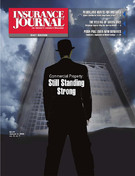New types of tax-advantaged account-based health plans, culminating in the health savings accounts created by Congress last year, could result in major changes to America’s health care financing and delivery systems, according to the Employee Benefit Research Institute, although EBRI’s most recent report concludes that it’s still too early to say whether those changes will be positive or negative.
The products, which also include medical savings accounts and flexible spending accounts, all encourage Americans to put aside money on a tax-advantaged basis that can subsequently be used to pay medical expenses. HSAs and MSAs require the purchase of high-deductible health insurance and are designed to make patients more sensitive to the costs of the health care services they are purchasing. HSAs also encourage workers to set aside savings that can be used to pay for medical services needed in retirement.
While HSAs have generated considerable interest within the employer community, there’s little evidence available on how popular they will prove with workers. Some analysts fear they will result in adverse selection (where the healthiest participants abandon today’s coverage for the new products), thereby substantially raising premiums for the sick who remain in traditional plans and find the new options unattractive.
“While there appears to be a substantial potential market for these new products, the jury is out on whether they will result in the creation of a more rational American health care delivery system,” said EBRI President Dallas Salisbury.
Employer-employee gap
Meanwhile other research suggests that the future of HSAs and similar consumer-driven health plans may be jeopardized by a widening gap between employers and employees over how to deal with rising health costs.
The 2004 Towers Perrin Health Care Consumerism Survey: Aligning Employer and Employee Interests shows that recent employer efforts to control company health care costs have fueled growing employee resistance and have compromised the perceived value of health benefits in many organizations.
“The clear trend among employers is to try to enlist employees as allies in the effort to control health care cost growth by educating them about the problem and encouraging them to be more thoughtful consumers of health care through changes in plan design and related initiatives,” said Jim Foreman, managing director of health and welfare for Towers Perrin’s human resources business.”Our survey suggests that many employees just aren’t buying it, in part because they’ve been largely shielded from the true cost of health care during the managed care era and view rising costs as the company’s problem. What comes through loud and clear in our survey is that, for employees, health care is all about me.”
Most employers have moved to share a portion of the added costs with employees in recent years, either through increases in employee contributions for coverage (reported by 87 percent of employer respondents) or through reductions in benefit levels (81 percent).
In addition, most employers are moving forward with efforts to help employees be better health consumers. For example, 71 percent of employers provided information to help employees make better decisions about coverage. More than half (52 percent) also introduced information or programs to encourage employees to adopt healthier behaviors, the survey found.
Also notable is that more than a quarter (27 percent) of employers have implemented consumer-driven health plan designs in the last few years, while fully half will implement or consider offering them in the next few years.
Employee resistance
Employee responses to the Towers Perrin survey reveal that working Americans are becoming increasingly resistant to health care cost shifting by their employers. For example, only 28 percent feel it would be appropriate for their employers to ask them to absorb additional cost increases, while only 15 percent feel that further benefit reductions are appropriate. In a survey conducted last year, almost half (46 percent) of employees felt it was appropriate for their employers to ask them to absorb increases.
What is somewhat surprising is the employee reaction to consumerism initiatives and consumer-driven health plans. The vast majority of the employees surveyed (82 percent) believe they are already good consumers and this was up from 72 percent of employees surveyed last year. What’s more, other Towers Perrin research shows that employee participation rates in these new CDHPs are relatively low.
“Employers recognize that helping employees change behavior–use health care dollars more carefully and adopt healthier lifestyles–will play an important role in controlling cost growth,” Foreman said. “But achieving the desired behavior changes will be difficult if employees think they are good consumers already and don’t trust the company’s motives with regard to costs.”
Was this article valuable?
Here are more articles you may enjoy.


 Meta Loses Insurance for Defense in Major Social Media Addiction Litigation
Meta Loses Insurance for Defense in Major Social Media Addiction Litigation  Cuts to Funding Mean Risks Will Pivot in Human Services Market
Cuts to Funding Mean Risks Will Pivot in Human Services Market  Florida Appeals Court Pulls the Plug on Physician Dispensing in Workers’ Comp
Florida Appeals Court Pulls the Plug on Physician Dispensing in Workers’ Comp  Zurich Insurance Said to Near Beazley Deal Funded by Equity Sale
Zurich Insurance Said to Near Beazley Deal Funded by Equity Sale 


